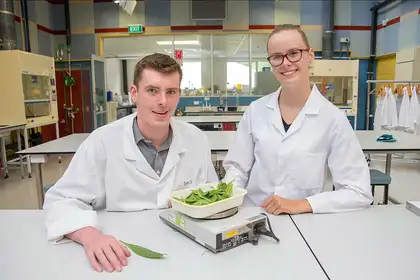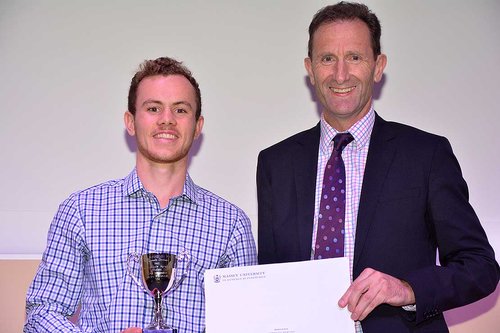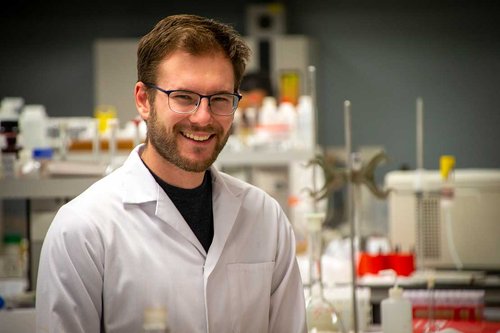
Agriculture and horticulture students at Massey University have had a boost ahead of exams and theses writing.
Held on Massey’s Manawatū campus late last month, the annual Applied Academic Programmes Scholarships Evening celebrates the success of agricultural and horticultural students, by providing financial support for their studies. Also allowing them to meet the sponsors, to thank them in person.
The highly-competitive undergraduate and postgraduate level scholarships are funded by industry, alumni and the University. Certificates were awarded to 104 undergraduate and postgraduate students. Most awards are designed to ease the burden of university fees or allow students to focus on their studies without having to work part-time jobs.
College of Sciences Pro-Vice Chancellor Professor Ray Geor says the evening represents a broader commitment to developing future leaders.
“The achievement of these students and graduates reflects on the combined investment of industry and Massey in the future for New Zealand’s primary industries. The financial support of these scholarships and the opportunities they generate are important to the development of our future leaders.
It’s one of the ways we are working with industry and the community to build capability in a rapidly transforming world to ensure success for our graduates and New Zealand.”
One of the recipients, master’s student Sam Pike, says the scholarships have not only pushed him to work harder, but become more actively involved in the community.
“I feel extremely grateful towards the scholarship providers, as I recognise that providing scholarships are a large financial commitment for companies and trusts,” Mr Pike says. “It means a lot to know our sector is willing to invest in our future, and they have opened many doors within the agriculture sector. I have received supportive mentoring, attended conferences and met a wide range of valuable industry contacts. This has greatly assisted me with helping to find summer practical work during my degree, as well as securing a job after I graduate.
“I would definitely encourage all students to apply in the future. It is not only academic excellence that scholarships acknowledge, but also leadership, community involvement, career aspirations or simply having a strong interest in the sector.”

Among the awards
The awards evening is a chance for the students to meet the people and organisations who are helping to fund their study.
The John Hodgson Pastoral Science Scholarship held extra significance, awarded for the first time since Professor Emeritus Hodgson’s passing. He was a leading world researcher in pasture science, and formerly led what is now the School of Agriculture and Environment. This award has been presented for many years by former Massey Associate Professor Dr Alex Chu, and was given to Alisha Harrop and Sam Pike this year. Ms Harrop also received one of the Colin Holmes Dairy scholarships named after the influential Massey University lecturer and researcher.
Benjamin Orchard was one of the top undergraduate students of the night, receiving a number of prizes for being the top student, including the Lord Bledisloe Prize for being the best undergraduate in agriculture after two years of study, the Sally Newton Prize in Agriculture for being the best second year student last year in pasture production, and the Collis Blake Prize in Animal Science for being the top student last year in animal science.

In postgraduate awards
Stacey Hendriks received a Colin Holmes Dairy Scholarship funded equally by Dairy Trust Taranaki and DairyNZ. Miss Hendriks is in the final year of her PhD in which she has been working out whether it is possible to determine which cows in a dairy herd have animal health problems that need treatment based on observations of their behaviour.
Another high-flying postgraduate master’s student Nicolaas Portegys received the George Mason Sustainable Land Use Scholarship a Ravensdown Agricultural Research Scholarship and the CV Fife Memorial Scholarship. Mr Portegys' master’s project is part of the Global Research Alliance’s ‘Mapping and managing urine patches to reduce nitrous oxide emissions’, looking at the accuracy of different methods of detecting, mapping and treating cattle urine patches in the paddock.